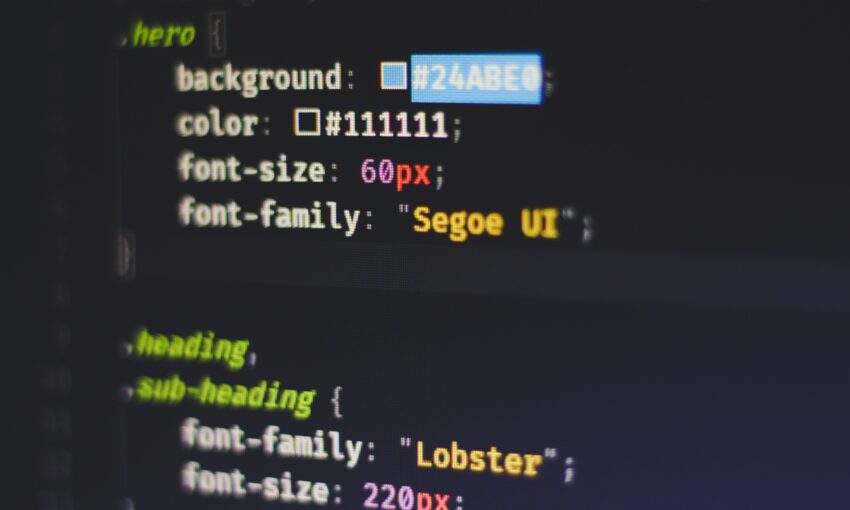Let’s pretend for a moment that you’re mentoring someone who is new to web development. They want to learn the necessary skills for becoming a professional, but aren’t sure where to focus. What would you tell them?
Now, whether you’re a newbie or a veteran of the industry, the skills you need to succeed are always evolving. Yet, there are still some foundational things that everyone should know – regardless of specialty.
Today, we’ll train our focus on a bit of both the new and traditional. Let’s take a look at the five essential skills for web developers in the present day.
Your Web Designer Toolbox
Unlimited Downloads: 500,000+ Web Templates, Icon Sets, Themes & Design Assets
Starting at only $16.50/month!
HTML and CSS
Surprised to see these two on the list? That’s understandable to some degree, as there are certainly more “exciting” technologies out there. But that doesn’t mean we should dismiss them.
To the contrary, both HTML and CSS continue to be the building blocks of the web. HTML is as important as ever, even if you’re using more robust languages such as PHP or JavaScript. Its role has evolved from something we used to style or lay out a page (though it was never intended for that purpose) to helping us build a semantic and accessible web.
CSS has also seen quite the evolution in its own right. The rise of CSS Grid and Flexbox have transformed how we create layouts. And it has also become a staple of animation, along with responsive design and advanced styling techniques. In some cases, it even serves as a solid replacement for JavaScript.
So, just like a house needs a solid foundation, web developers need to understand HTML and CSS inside-out. It would be difficult to accomplish other advanced functionalities without them.

JavaScript
JavaScript has also seen its own evolution. It started as a language that was often used to manipulate DOM elements and add a bit of functionality to websites. And it’s still quite adept for this purpose.
However, we’re now seeing entire interfaces being built with JavaScript as the main ingredient. This has a lot to do with some powerful frameworks that have come along in recent years. React and Vue, in particular, have led the way in this area.
While we haven’t seen these UIs take over the web just yet, it’s a segment that should continue to grow. That alone makes it worth digging into a framework or two.
Another area of growth is coming from WordPress and its Gutenberg block editor. It makes heavy use of React, which also happens to be a requirement for creating custom blocks natively.
Put it all together and you have lots of valid reasons for focusing on your JavaScript skills.

The Command Line
Everyone loves a good GUI. It just seems more comforting to point-and-click or drag-and-drop your way to accomplishing your goals. Still, the command line remains very relevant.
The funny thing is that even the latest buzzworthy technologies rely on the command line, or at least recommend its use. Take GatsbyJS, for example. The static site generator is all the rage these days and requires the command line to both build and maintain websites.
WordPress is the world’s most popular CMS and also has a wonderful CLI tool. It’s not required, but can perform the same functions as the visually-oriented Dashboard. And it also does some things the Dashboard can’t do, like large-scale search and replace, which makes it perfect for multisite installations and enterprise-level usage.
If you’re getting into version control, Git is another tool where the command line is recommended. There are some visual tools as well, but commands generally allow for more advanced usage.
Even if you don’t feel giddy at the sight of a terminal window, it’s still important that you know your way around one. Otherwise, you may not be able to accomplish everything your projects require.

How to Work with APIs
These days, websites don’t just depend on local files or databases. They often pull data from a number of outside sources. Providers such as social media platforms, cloud services and content delivery networks (CDNs) are powering a lot of essential functionality.
In many cases, websites interface with these outside sources via an API (Application Programming Interface). This allows for accessing a service or application’s data and features through a specific set of procedures – usually via code.
APIs are not one-size-fits-all, however. They can be proprietary – so what works for one service probably won’t work for others. Tapping into one usually requires digging into a particular API’s documentation.
Therefore, it’s important to learn the details behind whichever APIs you want to work with. Whether that’s Twitter, Amazon AWS or Google Maps, you’ll have to study up to get the most out of them.
Sometimes we can get lucky and the API functionality we need is already there for us. Often, you’ll find it in something like a WordPress plugin. But there will be times when you have to work directly with a provider to accomplish what you need.

The Ability to Adapt
It seems like there is always some new tool, technique or code breakthrough looking for our attention. So, our last essential skill in this roundup is all about adapting to an ever-changing web.
One of the biggest fears in web design and development is that of falling behind. You don’t want to be left holding the bag while others seize on the latest and greatest trends.
That’s why it’s vitally important to adapt to new ways of doing things and seeing how they fit into your workflow. This will enable you to stay relevant in the marketplace and potentially book some exciting projects.
There’s a catch, though. Not every new thing is going to be worth your time. The challenge is in finding skills to add to your repertoire that fit the types of projects you want to work on.
Perhaps the best thing to do is keep an eye on industry trends. If you see something that can benefit your career (or looks interesting), take time to learn more about it. Once you determine it’s a good fit, you can dig deeper.

Learn the Basics, Then Move Forward
There is a lot of pressure on developers to absorb libraries worth of knowledge. But the truth is that you don’t need to know every detail.
Each one of the skills mentioned here are vast. And it’s unlikely that any living soul knows everything there is to know about them. The key is in learning the foundational aspects first and foremost.
By familiarizing yourself with the basics, you will have the opportunity to add depth to your knowledge over time. Quite often, we learn how to do x, y and z because we’re working on a project that requires it. That’s a natural benefit of experience.
So, if there are some areas on this list you don’t know much about – don’t worry. Start small and work your way up. Eventually, you’ll have the skills necessary to succeed.
This post may contain affiliate links. See our disclosure about affiliate links here.




